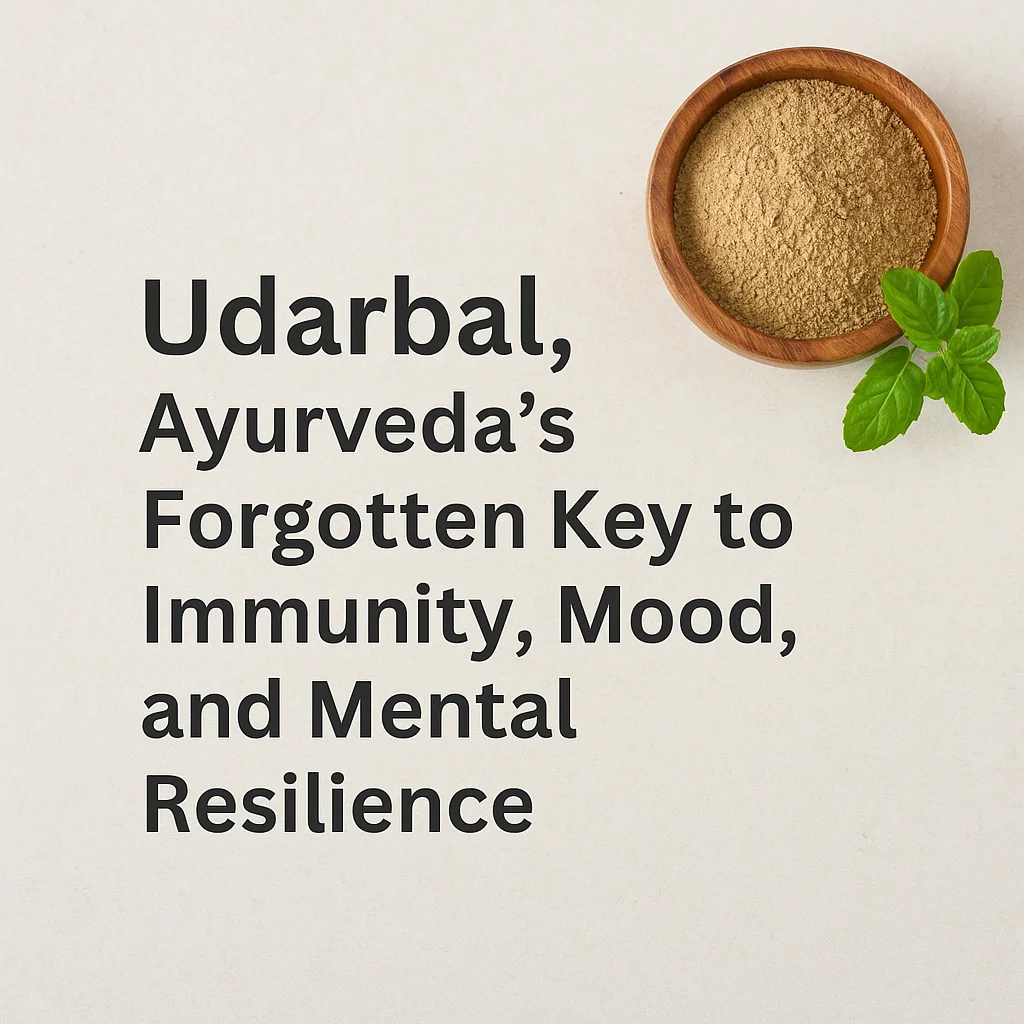Udarbal in Ayurveda: Forgotten Key to Immunity, Mood, and Mental Resilience
A Gut Feeling that Goes Deeper
In recent years, science has begun validating what Udarbal in Ayurveda knew long ago — that the strength of your digestion doesn’t just affect your stomach, but your mind, mood, and immunity. While today’s wellness world talks about the “gut-brain axis,” Ayurveda offered a more holistic concept thousands of years ago: Udarbal in Ayurveda — literally, the strength of the abdomen.
At J-AMADA Remedies, we believe this traditional concept deserves a fresh look in today’s world.
What is Udarbal in Ayurveda?
In classical Ayurvedic texts, Udarbal refers to a strong digestive system governed by a stable Agni (digestive fire). This isn't just about processing food — it’s about how well your system transforms that food into:
-
Rasa (nourishment)
-
Ojas (vital essence)
-
And ultimately, mental clarity and resilience
When Udarbal in Ayurveda is weak (due to Mandagni or irregular eating), the body produces Ama (toxins), which block physical and mental channels. This can lead to:
-
Frequent colds
-
Fatigue
-
Anxiety or low motivation
-
A dull sense of vitality
A Mind-Gut Connection... Centuries Before It Was Popular
Ancient Ayurvedic scholars observed that low digestive fire often led to mental imbalance. Conditions described as Chittodvega (anxious state) or Manodaurbalya (mental weakness) were treated by correcting digestion first.
The Charaka Samhita states:
“Agni is the root of life. When Agni is balanced, the person is healthy.”
Modern medicine is catching up, now showing that gut bacteria and inflammation affect neurotransmitters like serotonin. Ayurveda simply saw the gut as the seat of transformation — for food and emotion alike.
How to Support Udarbal (Digestive Strength) Naturally
Based on traditional Ayurvedic routines, here are simple, classical ways to nourish digestive strength:
✔️ Start with warm, digestible foods
Rice gruel with cumin, ghee, and ginger is a traditional Vata-balancing meal.
✔️ Use Agni-boosting herbs
Common herbs in classical preparations include:
-
Pippali (long pepper)
-
Chitrak (Plumbago)
-
Guduchi (Tinospora cordifolia)
-
Jeeraka (Cumin)
These herbs are found in many classical formulas aimed at improving digestion and vitality.
✔️ Incorporate oil massage (Abhyanga)
Massaging the abdomen with warm Dashmool oil can help regulate Vata in the digestive tract, especially postpartum or during seasonal transitions.
✔️ Avoid cold, heavy, incompatible foods
Classical texts repeatedly advise against irregular eating, cold water, or mixing fruits with dairy, as they disturb Agni and promote Ama.
Final Thought
Immunity is not built in a capsule. It is cultivated in the gut — one well-digested meal, one calm breath, one stable Agni at a time.
The more we rediscover Ayurveda’s forgotten insights, the more rooted and resilient our health becomes.Let’s not treat digestion as a minor function — let’s see it as the sacred alchemy it truly is.
How J-AMADA Upholds the Wisdom of Udarbal in Ayurveda?
At J-AMADA Remedies, our formulations are inspired by the foundational Ayurvedic belief that digestive strength is the first step in healing — not just for the body, but also for emotional and immune resilience. A whole range of products can be explored here in consultation of our Vaidyas.
-










 Know your Dosha
Know your Dosha